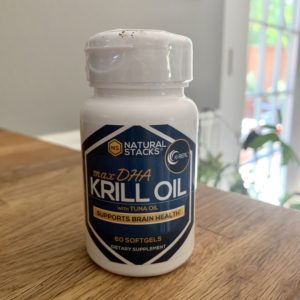 In an effort to protect our hearts, reduce inflammation, and live longer, Americans spend more than $1 billion a year on over-the-counter Omega-3s.
In an effort to protect our hearts, reduce inflammation, and live longer, Americans spend more than $1 billion a year on over-the-counter Omega-3s.
Is fish oil really a wonder pill, or are we just wasting our money?
HOW IT STARTED
The Pharmacy Times recently published The Fish Oil Story, a fascinating read. Long story less long:
In the 70s researchers discovered that Eskimos, particularly Greenland Inuit, and the Japanese, had very low rates of myocardial infarction and other coronary events, despite the fact that they consumed large amounts of fat derived from fish.
Ironically, by the late 70s the US government started telling us to eat less fat. And that kicked off a low-fat craze that would last for more than a decade. By the mid-'80s, supermarket shelves were filled with highly processed, low-fat foods. Snackwell cookie, anyone?
New decade. A GISSI study published in 1999 claimed that eating a low-fat diet AND supplementing with fish oil would improve our heart health. Cha-ching, And so began a billion-dollar-a-year industry.
THE MOST UP TO DATE RESEARCH
Gina Kolata, an American science journalist, recently wrote an article for The New York Times titled 10 Findings That Contradict Medical Wisdom. Doctors, Take Note. Fish Oil is one of the 10 things that come under fire.
The findings: in a trial involving 12,500 people at risk for heart trouble, daily omega-3 supplements did not protect against heart disease. "We conclude that there was no significant benefit of n−3 fatty acids in reducing the risk of death from cardiovascular causes or hospital admission for cardiovascular causes.”
SO IS IT BENEFICIAL?
In a recent article, Howard LeWine, M.D., the Chief Medical Editor at Harvard Publishing, says, “How food, and its component molecules, affect the body is largely a mystery. That makes the use of supplements for anything other than treating a deficiency questionable. But it’s more than likely that you need the entire orchestra of fish fats, vitamins, minerals, and supporting molecules, rather than the lone notes of EPA and DHA.”
So for now, based on the available research, it’s reasonable to think that Omega-3s might help with brain function and inflammation. It’s also safe to say that the best way to get Omega-3s is to actually eat fish! Not a fish eater? Then you may want to speak with your doctor about supplementing with fish oil pills.

